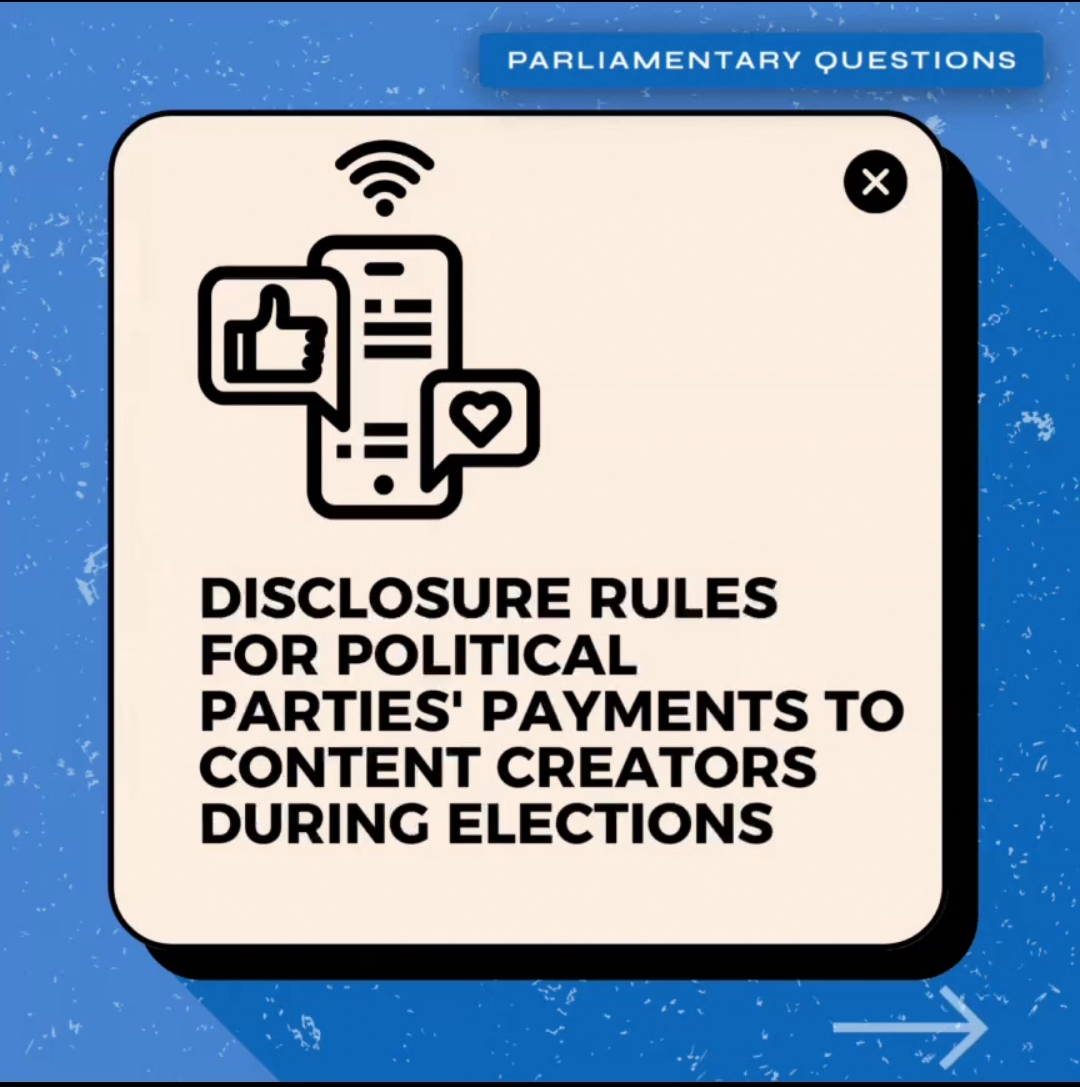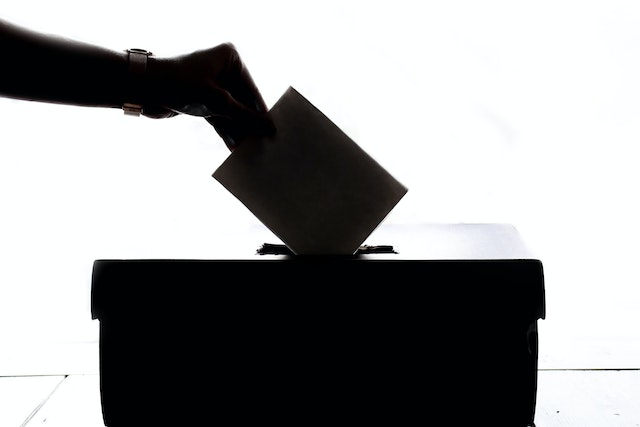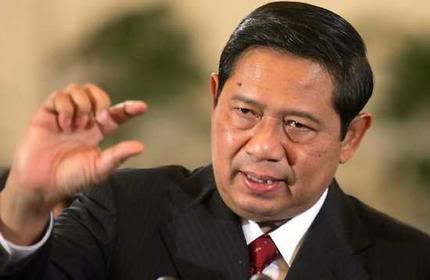Accommodations for PwDs
The Parliamentary Elections (Amendment) Bill takes steps to make elections more accessible for people with disabilities (PwDs) through the introduction of polling stations and mobile polling teams in nursing homes. In my speech today, I would like to make a proposal that could help PwDs more fully participate in the election process.
Article 29(a)(iii) of the United Nations’ Convention on the Rights of Persons with Disabilities (UNCRPD), which Singapore has ratified, calls for political participation by disabled people by “Guaranteeing the free expression of the will of persons with disabilities as electors and to this end, where necessary, at their request, allowing assistance in voting by a person of their own choice.”
However, the Government has placed a reservation on Article 29(a)(iii), stating that to keep voting secret and to safeguard the integrity of voting, PwDs can only be assisted by an election official. According to the Government, the election official is obliged to mark the ballot paper in the manner directed by the voter and is under oath to keep the vote secret.
Has the Government considered the possibility that some PwDs would prefer to have someone they know and trust to help them to vote? This is a concern also expressed by the Disabled People’s Association (DPA). Other countries such as Canada and Germany allow friends and family to assist a PwD with voting. In Canada, the provision is made under Section 243.01 of the Canada Elections Act, which allows for either a friend or a relative to accompany a voter who “requires assistance to vote.”
In Germany, this is provided under Section 14 of the Federal Elections Act, which states that: “Persons eligible to vote who are illiterate or prevented by a disability from casting their vote may avail themselves of another person’s assistance for that purpose.”
If the concern is that the person assisting the PwD will not keep the vote secret, they can be required to take an oath of secrecy, just like all the candidates’ polling agents and counting agents currently do.
Incorporating this measure will better ensure that PwDs can exercise their right to vote in a smooth and comfortable manner, while upholding the secrecy of their vote and election integrity.
Electronic voting and counting of votes
The Bill allows for votes to be counted by electronic means. This adds to previous amendments to the Act where electronic voting was permitted.
When votes are counted by manual or mechanical means, counting agents appointed by the candidates and the candidates themselves are able to personally witness the counting of all the votes. They can physically ensure there is no mis-count of votes for each candidate.
The existing Act sets out the details on the inspection and testing of electronic voting machines in the presence of the candidates, their election agents or polling agents before and during elections. However, the Bill before us today does not appear to mention the inspection and testing of the electronic counting machines or system.
Can the Minister clarify how the candidates and their counting agents will be able to audit the votes counted by electronic means?
Allowable activities after Parliament is dissolved
Finally, I would like to seek more clarity from the Minister about what kind of election activities are allowed in the period from the day the Writ of Election is issued to Nomination Day. The rest of the questions in this speech relate to this period.
Parliament is dissolved when the Writ of Election is issued. When this happens, every Member of Parliament ceases to be an MP according to Article 46(1) of the Constitution of the Republic of Singapore and their allowances cease to be paid.
After Parliament is dissolved, are the former MPs allowed to hold Meet-the-People sessions (MPS) in their constituencies, interact with residents and provide assistance to them? Can they write appeal letters to government agencies or other organisations on behalf of their constituents, and if they do, are agencies obliged to respond to them?
It should be noted that many residents will not be aware that MPs stand down after Parliament is dissolved and will continue contacting their MPs for assistance, sometimes on urgent personal matters or municipal matters that have safety implications.
Next, do grassroot adviser (GRA) appointments cease when the Writ is issued? If not, can GRAs continue operating as per normal after the Writ is issued, including writing appeal letters to government agencies on behalf of residents?
Given that the People’s Association almost always appoints individuals who are PAP members as GRAs, would allowing GRAs to operate as per normal during this period circumvent the restrictions that are otherwise placed on election candidates, and create an unlevel playing field for the opposition?
Is “campaigning” allowed from the day the Writ is issued to Nomination Day? Are potential candidates allowed to conduct house-to-house visits or visit markets and coffee shops, to either check on residents’ well-being or explicitly canvass for votes, while wearing their party uniforms and badges?
Just before previous elections, some incumbent MPs and potential candidates conducted some of these activities. For example, a Yahoo News article entitled “GE2020: Josephine Teo to leave Bishan-Toa Payoh GRC to contest in Jalan Besar” reported that Mrs Teo was “seen during a People’s Action Party (PAP) walkabout at Beo Crescent on Monday morning (29 June), together with Jalan Besar incumbent Members of Parliament (MPs) Denise Phua and Heng Chee How, as well as new candidate Wan Rizal Wan Zakariah. They were introduced to the residents as candidates contesting the GRC.”
That year, Parliament was dissolved on 23 June and Nomination Day was 30 June. This constituency walkabout took place within this period.
In another article in the Straits Times, it was reported that then-National Development Minister Lawrence Wong announced the PAP’s slate in Marsiling-Yew Tee GRC at a walkabout in the Marsiling ward of the GRC on 28 June — again within this period. There was even a video of the team, consisting of Mr Wong, Mr Zaqy Mohamad, Mr Alex Yam and Ms Hany Soh, together with Mr Ong Teng Koon, the former MP of the ward, at a coffee shop wearing their PAP all-white uniforms. At least two members of the group were wearing a PAP badge.
In the Candidate Handbook for General Election 2020 published by the Elections Department, under section 2.4 titled “Activities from Writ of Election to Nomination Day”, it stated that “After the Writ of Election is issued and before the campaign period starts, activities such as walkabouts, house-to-house visits, distributing election pamphlets, handouts and newsletters, and publishing of party manifestos and candidates’ biographical details will be subject to the applicable election advertising requirements.”
This implies that such activities are allowed subject to advertising requirements.
The next paragraph in that same section states more explicitly that “Political parties and candidates may conduct campaigning activities such as walkabouts, house-to-house visits and the distribution of collaterals.”
Based on section 2.4 of the Candidate Handbook, it appears that some types of campaigning, including walkabouts, house-to-house visits and distribution of collaterals from the day the Writ of Election is issued to Nomination Day are allowed. However, the same language is not reflected in the Parliamentary Elections Act. Can the Minister please clarify if the ELD Handbook is legally accurate in this respect?
Summary
Mr Speaker, to strengthen our democracy, the accessibility, integrity and fairness of our election process is of paramount importance. I look forward to the Minister addressing the questions and concerns I have raised.
_________
Debate on the Parliamentary Elections (Amendment) Bill, 6 March 2023
Photo by Element5 Digital on Pexels


